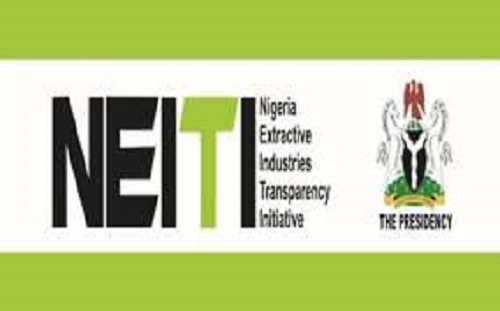The Nigeria Extractive Industries Transparency Initiative (NEITI) has issued a policy-backed caution on what it describes as a “silent fiscal emergency” quietly undermining the economic stability of Nigeria’s states.
This alert follows the release of NEITI’s latest Policy Brief — “Beyond Federal Allocations: The Cost of Borrowings and Debt Servicing at State Level in Nigeria” — which provides fresh, evidence-based insights into how debt servicing obligations are constraining states’ capacity to fund essential services, local infrastructure, and poverty reduction initiatives.
NEITI explained that the decision to undertake this research is rooted in its statutory mandate under the NEITI Act 2007 and in line with global EITI Standards, which require disclosures on revenue allocations and subnational transfers. States in Nigeria receive substantial monthly allocations from the Federation Account, much of it derived from extractive revenues. However, when between 10% and 30% of these allocations are deducted at source for debt servicing, the fiscal space for grassroots infrastructure, social services, and poverty alleviation is severely diminished. By shedding light on the scale and implications of these deductions, NEITI is providing citizens, policymakers, and development partners with reliable evidence to drive fiscal discipline and prudent debt management.
The Initiative further noted that the study addresses a critical governance gap by complementing national debt management reforms with robust subnational fiscal transparency. High and unsustainable debt servicing obligations pose risks to state-level stability and undermine the developmental impact of extractive revenues. Through this disclosure, NEITI empowers citizens, civil society, and the media to hold state governments accountable for their borrowing decisions, while providing a credible, evidence-based platform for dialogue on debt sustainability thresholds, transparent loan agreements, and responsible economic governance.
The Policy Brief reveals that between 10% and 30% of monthly FAAC allocations in many states are directly deducted at source for debt servicing, leaving less room for grassroots development investment.
Kaduna State recorded the highest 2024 deduction ratio at 32.06%, translating to ₦51.2bn deducted from ₦159.7bn in gross allocations. Ogun State followed with 27% (₦33bn from ₦123bn), Bauchi with 26% (₦37bn from ₦142bn), and Cross River with 24% (₦28bn from ₦119bn).
From the NEITI Policy Brief, these high-debt states contrast sharply with low-debt performers such as Borno with only 2.63% debt reduction obligations, Jigawa 2.74%, Benue -3.58% and Nasarawa -3.82%) debt burden exposure. Other States with low debt burden commitments include Kebbi 4.06%, Bayelsa -4.46%, and Anambra 4.54%, where prudent borrowing and efficient fiscal management have preserved over 95% of gross allocations for direct development spending.
The NEITI Policy Brief also examined Positive Debt-to-GDP Management implications and the lessons that subnational governments must consider. NEITI notes that these low-debt states provide practical models for maintaining a healthy debt-to-GDP profile while still leveraging borrowing for development where necessary. This balance between debt and revenue is critical for preserving fiscal sovereignty and avoiding dependency on future bailouts.
Hidden Liabilities and Contractual Risks
The Policy Brief also flags contractual obligations—notably in Ogun (₦6bn) and Ondo (₦7.73bn) tied to public-private partnerships (PPP) and infrastructure projects—warning that opaque contract terms and excessive deductions can undermine future fiscal space.
Conversely, 18 states, including Abia, Adamawa, and Akwa Ibom, reported zero contractual deductions, signaling more cautious or strategically timed borrowing.
Inequality in the Revenue Sharing Formula
In 2024, Delta State received ₦581.27bn — five times the ₦108.32bn received by Nasarawa. NEITI warns that such disparities, compounded by high debt-servicing ratios in smaller-allocation states, could deepen fiscal inequality and stall regional development.
Policy Prescriptions for Fiscal Sustainability
The Policy Brief recommended:
- Establishing State Debt Management Offices (DMOs) in all 36 states.
- Mandatory real-time debt reporting and quarterly public disclosures.
- Linking federal bailouts/support to improvements in IGR and fiscal transparency.
- Revising the revenue allocation formula to address vertical and horizontal imbalances.
- Capping contractual deductions and publishing the full terms of major borrowing agreements.
NEITI’s Call to Action
The NEITI Executive Secretary, Dr. Orji Ogbonnaya Orji stressed that this is “not a name-and-shame exercise, but a mirror and a map” a mirror to reflect fiscal realities, and a map to guide states toward resilience, transparency, and equitable growth.
Dr Orji cautioned that “Debt, when managed efficiently, can be a tool for financing development at the grassroots. But when servicing obligations consume up to a third of monthly revenues, it becomes a threat to the future of public service delivery and economic stability.”
The Executive Secretary NEITI affirmed that NEITI’s recommendations align with its mandate under the NEITI Act and Nigeria’s obligations under the global Extractive Industries Transparency Initiative (EITI) Standards, particularly on debt transparency, subnational transfers, and revenue governance.
NEITI further pointed out that as Nigeria navigates a challenging fiscal landscape, the Policy Brief stands as both a red flag, a warning bell and a reform blueprint urging state and federal authorities to act decisively with bold reforms before debt becomes not just a burden, but a destination.
The Policy Brief which is comprehensive with data has been shared to the federal government including the National Assembly, relevant MDAs and the National Economic Council. It has been widely circulated to the States accountant General and Commissioners of Finance as well as the Governor’s Forum. The NEITI Policy Brief is also available on the NEITI website- www.neiti.gov.ng


Comment here